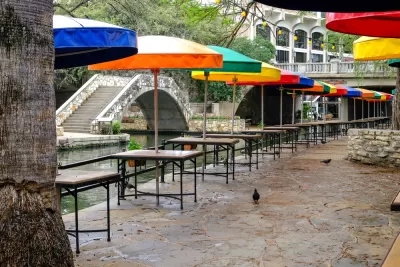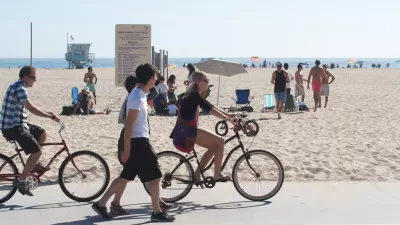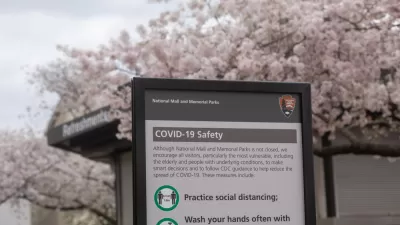More affluent people in the United States tended to stay at home sooner, and much more consistently, than low-income Americans according to location data tracked on mobile phones.

Location data is revealing the inequities of the coronavirus pandemic, as shown by who has the ability to stay home, and who has to go about their normal business and hope for the best while trying to hold down jobs and take care of families and themselves.
In cities across America, many lower-income workers continue to move around, while those who make more money are staying home and limiting their exposure to the coronavirus, according to smartphone location data analyzed by The New York Times.
Jennifer Valentino-DeVries, Denise Lu, and Gabriel J.X. Dance created this interactive feature to use words and graphics to illustrate the reality described above.
Although people in all income groups are moving less than they did before the crisis, wealthier people are staying home the most, especially during the workweek. Not only that, but in nearly every state, they began doing so days before the poor, giving them a head start on social distancing as the virus spread, according to aggregated data from the location analysis company Cuebiq, which tracks about 15 million cellphone users nationwide daily.
For more on the ability of mobile phones to track locations of both the healthy and the infected during the pandemic, see the Social Distancing Scorecard by Unacast, which has shifted since shared by Planetizen. Also see coverage of Google's efforts to report movement data, as reported by Steven Overly.
FULL STORY: Location Data Says It All: Staying at Home During Coronavirus Is a Luxury

Alabama: Trump Terminates Settlements for Black Communities Harmed By Raw Sewage
Trump deemed the landmark civil rights agreement “illegal DEI and environmental justice policy.”

Study: Maui’s Plan to Convert Vacation Rentals to Long-Term Housing Could Cause Nearly $1 Billion Economic Loss
The plan would reduce visitor accommodation by 25% resulting in 1,900 jobs lost.

Planetizen Federal Action Tracker
A weekly monitor of how Trump’s orders and actions are impacting planners and planning in America.

Waymo Gets Permission to Map SF’s Market Street
If allowed to operate on the traffic-restricted street, Waymo’s autonomous taxis would have a leg up over ride-hailing competitors — and counter the city’s efforts to grow bike and pedestrian on the thoroughfare.

Parklet Symposium Highlights the Success of Shared Spaces
Parklets got a boost during the Covid-19 pandemic, when the concept was translated to outdoor dining programs that offered restaurants a lifeline during the shutdown.

Federal Homelessness Agency Places Entire Staff on Leave
The U.S. Interagency Council on Homelessness is the only federal agency dedicated to preventing and ending homelessness.
Urban Design for Planners 1: Software Tools
This six-course series explores essential urban design concepts using open source software and equips planners with the tools they need to participate fully in the urban design process.
Planning for Universal Design
Learn the tools for implementing Universal Design in planning regulations.
Caltrans
Smith Gee Studio
Institute for Housing and Urban Development Studies (IHS)
City of Grandview
Harvard GSD Executive Education
Toledo-Lucas County Plan Commissions
Salt Lake City
NYU Wagner Graduate School of Public Service





























